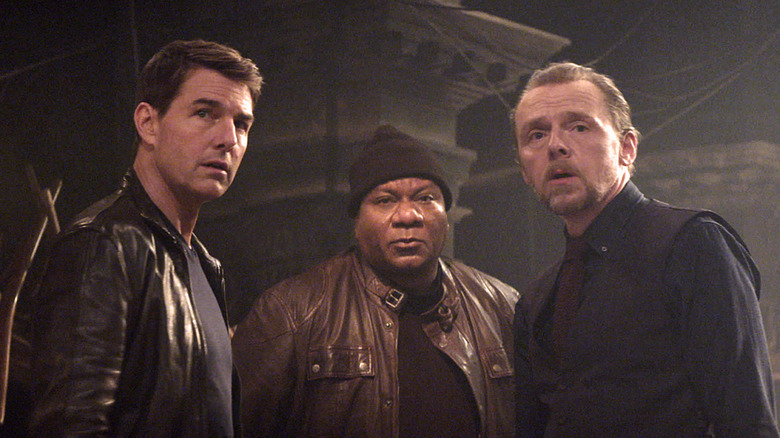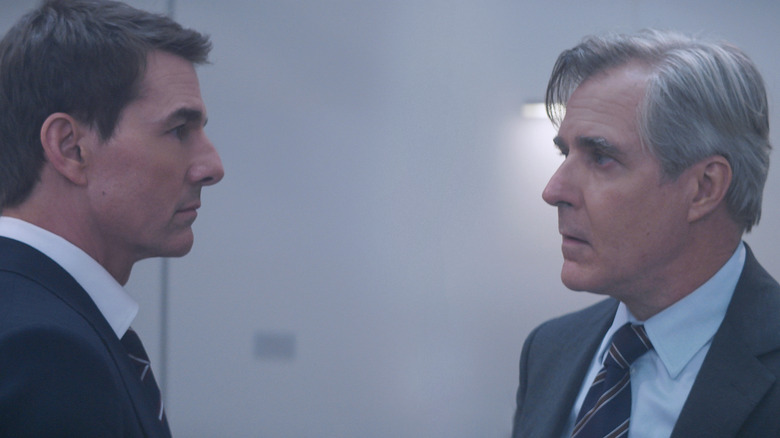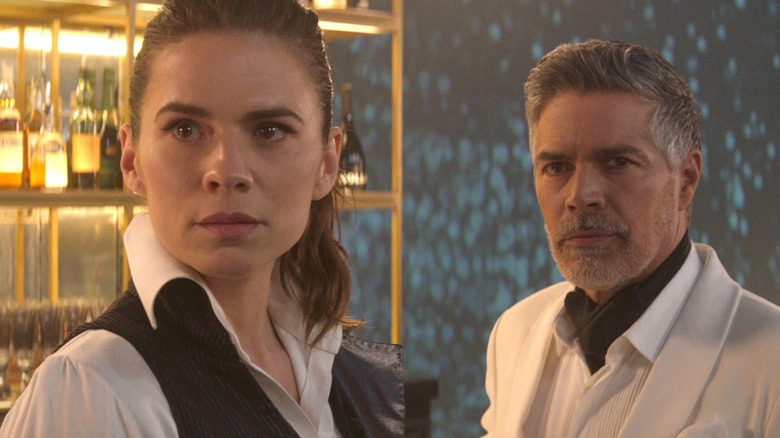Mission: Impossible - Dead Reckoning Part One Review: Cruise Proves To Be The Only Real Superhero
- Everything you've come to love about this franchise, and then some
- Some of the best big budget action work out right now
- Terrific work from new players Hayley Atwell, Esai Morales and Shea Whigham
- Long run time prioritizes set piece intricacy over character development
- The plot is riddled with contrivances and logic leaps
Tom Cruise has undergone many transformations across the four decades of the "Mission: Impossible" series. In 1996, the first film became the star's first franchise. His pride and joy has seen directors come and go, but Cruise's steely glare and penchant for dangerous stunts remains. In 2011, Paramount felt he was getting too long in the tooth and wanted "Mission: Impossible — Ghost Protocol" to be his graceful exit, making way for Jeremy Renner to become the top guy in the territory. But that glaring mistake became the spark that led to the series' further longevity. This is precisely when Cruise first injected his favorite script doctor, "Usual Suspects" scribe Christopher McQuarrie, into the franchise.
McQuarrie wrote and directed the next two entries in the "Mission: Impossible" series, each bigger than the last. He also had a hand in the massive success of "Top Gun: Maverick." The ensuing renaissance has rehabbed Cruise's public image from couch-jumping, cult-following zealot to The Last True Movie Star, savior of the industry when a global pandemic threatened to shutter cinema doors forever. That evolution off-screen has run parallel to the transformation of Ethan Hunt from American James Bond pastiche to literal superhero. The moment McQuarrie penned Alan Hunley's iconic line about Hunt being "the living manifestation of destiny," the character became something more aspirational and mythic than your average spy-fi protagonist.
Now, with "Mission: Impossible — Dead Reckoning Part One," the giant-sized first half of a planned finale for the series, McQuarrie and Cruise lean even further into blurring Cruise's real-life status as a film crusader with his character's bid to become a better, more complete hero than any of the guys with capes on either side of the MCU/DCU brand war. The results are pretty spectacular.
Ethan Hunt's choice
McQuarrie's "Mission: Impossible" films follow a reliable formula that reaps dramatic dividends. It's not that dissimilar to that of the entries that precede him, but its execution and complexity makes it unique. Ethan and his team always have a difficult mission. Should they choose to accept it, they globetrot to exotic and breathtaking locales and chase some world-threatening MacGuffin. Ethan usually runs ... a lot. He also leaps from buildings, hangs off of moving planes, and otherwise forces the viewer to worry not only for his fictional well-being, but also that of the 60-something star portraying him.
There's a persistent wrinkle that complicates this iteration of Ethan Hunt, which feels incidental in earlier outings, but becomes a core element of the character. He doesn't choose between the greater good and the lives of those who matter most to him — he insists on having his cake and eating it, too. This isn't presented as a character flaw, necessarily, or a naïve failing that must be corrected through tragedy. It is, instead, Ethan's greatest strength.
"Dead Reckoning Part One" also presents a new bit of retroactive continuity regarding the nature of the Impossible Mission Force's recruiting methods, hinting at a darker past for Ethan. The film's primary villain, Gabriel, steps out of these shadows, played with quiet intensity and charming malice by Esai Morales. If Gabriel is something of an anti-Ethan, then newcomer Grace (Hayley Atwell), a thief caught up in his larger machinations, proves a blank slate on which Ethan can present his team's ideology.
So, while there's a big world-threatening thing everyone is after — which necessitates all manner of car chases, shoot-outs, fight sequences, and other spectacles — the film feels like one long thesis statement from the last true good guy about doing the right thing in a world where selfishness and the accumulation of power reign supreme. As he goes rogue against the establishment, he's finally treated like the fugitive he is: Shea Whigham's Jasper Briggs, the man sent to bring him in, doesn't care whether or not Ethan is a hero.
Quite frankly, it's all a bit heady for a morality play that's also an excuse for Tom Cruise to ride a motorcycle off a cliff.
Ethan vs. the Entity
It's absolutely clear that any inconsistencies in this film's plot and all nagging questions surrounding its logic are the result of McQuarrie and the gang centering spectacle and emotion above all else. "Dead Reckoning Part One" feels bigger than every other "Mission: Impossible" movie. Whether or not that's true is open to debate, as each of this franchise's high points can go toe to toe with the other, but there's a real sense that McQuarrie has leveled up as a filmmaker, and the entire team has risen to match him. Lorne Balfe's score is one of the most evocative and impressive in the series, and Fraser Taggart's camera work makes this feel more like high art than even the most dizzying heights of the Craig Bond era.
That said, the revelations surrounding the film's big bad and its true nature are absolutely laughable, if taken at face value. But the conflict between Ethan and the Entity feels not only like an amazing metaphor for Tom Cruise's place as an analog face in an increasingly digital industry, but also the natural progression of Ethan's arc. The only true opposition to a man who thinks so illogically and emotionally about the preservation of the status quo and the safety of his friends must be something or someone that can only see the world in terms of cold calculation.
"Dead Reckoning Part One" takes the viewer's love of Ethan and his IMF team for granted. This means it can focus more on big, intricate set pieces than the charm and camaraderie we're used to. This might jar some viewers, but it feels like all the big emotions and ideas are going to pay off in "Dead Reckoning Part Two," if only because we as an audience have grown to trust Tom Cruise the way this fictional world's espionage community must believe in Ethan Hunt. If Ethan is the living manifestation of destiny, then Cruise is the same, but for the spirit of cinema. He will keep the big screen experience alive (and line his considerably thick pockets) or die trying.
"Mission: Impossible — Dead Reckoning Part One" hits theaters on July 12.


